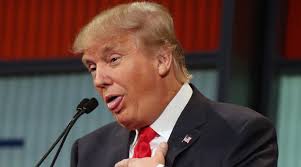On July 22, 2011, a home-grown Norwegian terrorist, Anders Breivik, shot and killed 69 people at a labor union retreat on the island of Utoya, having earlier that day killed 8 people by detonating a homemade bomb in downtown Oslo. The attack sent shockwaves through Norwegian society, especially when the first group of court-appointed psychiatrists declared Breivik mentally unfit to stand trial. A second team of doctors then re-examined the prisoner, found him fully cognizant of what he had done, and the ensuing trial resulted in a guilty verdict and loss of liberty for the next twenty years.
 The conflicting medical opinions about Breivik inaugurated a heated debate in medical circles about the adequacy of psychiatric diagnoses in criminal cases which is still going on. The most recent contributions appeared in March and raised once again the issue of whether Breivik was truly crazy or not. And what I mean by ‘crazy’ was whether his decision to plan and execute the killings of more than 75 people was based on a rational series of decisions which he could have controlled.
The conflicting medical opinions about Breivik inaugurated a heated debate in medical circles about the adequacy of psychiatric diagnoses in criminal cases which is still going on. The most recent contributions appeared in March and raised once again the issue of whether Breivik was truly crazy or not. And what I mean by ‘crazy’ was whether his decision to plan and execute the killings of more than 75 people was based on a rational series of decisions which he could have controlled.
As everyone is aware, the line between how well people understand what brings them to commit the most fiendish and savage acts of violence is often very thin and may or may not really exist at all. But in case you didn’t know it, the United States has a true expert in this area who happens to be an almost-candidate for President named Donald Trump. Because it was back in August, 2015, that Trump assured us that the killing of two media reporters in Virginia could not have been prevented because it was caused by too many ‘mentally ill’ people wandering around in the streets.
Now you might believe that Trump’s incisive analysis of the connection between mental illness and gun violence is based on his thorough knowledge and profound understanding of something that the entire medical profession still hasn’t figured out. But I’m going to let you in on a little secret: The real reason that Donald Trump is able to speak with such assurance and readiness about gun violence and mental illness is that he exhibits many of the self-same mental traits that both psychiatric teams observed when they examined the man who holds the record for shooting the most people in a single place.
Incidentally, I have not only read the forensic reports on Breivik, as well as the peer-reviewed studies that have subsequently appeared. I have also read the 1,500-page prolegomenon explaining his political philosophy that Breivik sent to 700 people with whom he connected through his Facebook page. And there are aspects of his political philosophy and historical analysis that also parallel things that Trump has said. Stay tuned - that’s a subject for a separate blog.
The clinicians who evaluated Breivik agreed that he exhibited ‘pathological grandiosity.’ They also found that he had a ‘severe narcissistic personality disorder’ combined with ‘pathological lying.’ Are persons suffering from these disorders delusional? No. Are they able to distinguish between ‘right’ and ‘wrong?’ In most instances yes, but what drives them to commit their violent acts is the absolute conviction that their ideas and their state of mind must be defended at all times.
Now let’s take a dispassionate view of the behavior of one Donald Trump. Is he pathologically grandiose? Is New York a city? Is he severely narcissistic? Have you ever seen another politician who spends so much time talking about himself? Is he a pathological liar? I mean, give me a break. And when was the last time Trump was caught defending his ideas in angry and aggressive ways? The last time he opened his mouth.
This is a guy who bragged that he could test the loyalty of his supporters by shooting someone dead in the street. What would drive Trump to conjure up the image of gun violence during a political campaign? The same demons that swirled inside Anders Breivik’s head.
Okay GVP - don’t forget what you have to do November 8th.
Leave a Reply